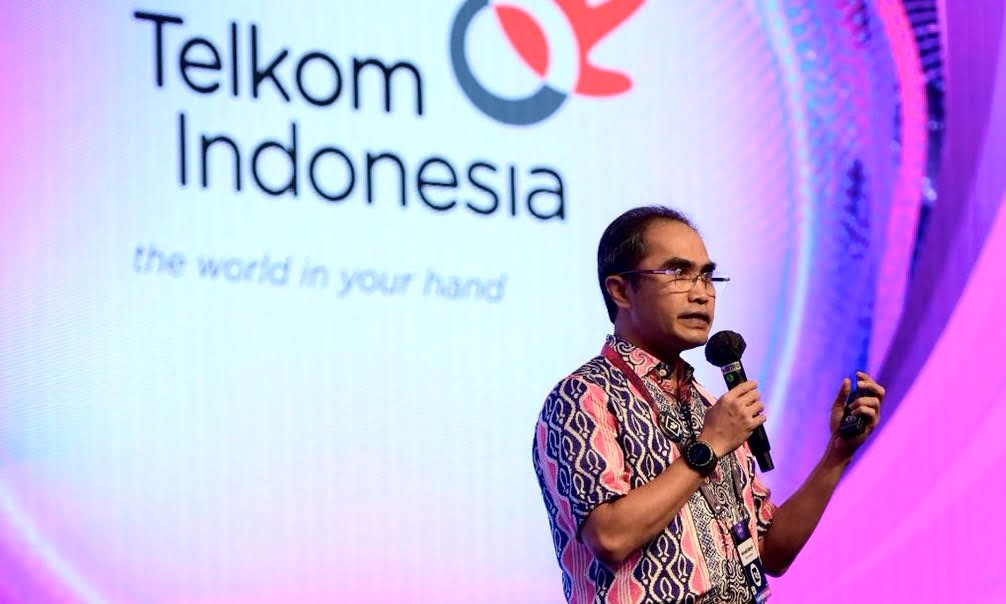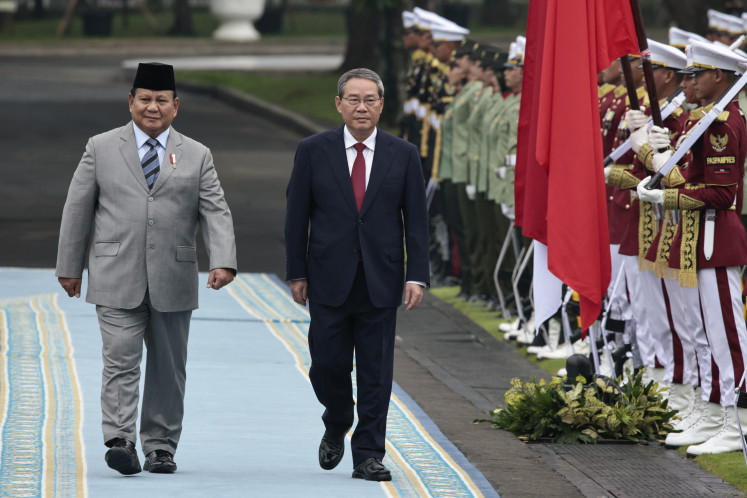Telkom’s B2B transition hindered by bureaucracy: Director
Change text size
Gift Premium Articles
to Anyone

P
T Telekomunikasi Indonesia faces challenges in moving from a business-to-consumer (B2C) model to a business-to-business (B2B) model, as the transition has run up against bureaucratic hurdles and difficulties in persuading the government and stakeholders.
Speaking at the Batic conference in Nusa Dua, Bali, on Wednesday, Telkom Group business development director Honesti Basyir said one of the challenges was that an organic digital transformation within Telkom's ecosystem was costly and time consuming.
“Growth [in revenue] will slow down for the time being,” he explained, “but don’t worry, we’ll be successful.”
For now, he noted, “we will continue communicating to ministries, stakeholders and investors that [digital transformation] is a long journey.”
Telecommunication firms (telcoms) are increasingly turning to mergers and acquisitions (M&A) in response to the industry’s transformation and intensifying competition, according to Budi Satria Dharma Purba, CEO of Telkom Indonesia subsidiary Telin.
Telkom conducted an internal merger as it spun off its IndiHome business to its cellular services arm Telkomsel on July 1 with the aim of transforming into a digital telcom and shifting to a more technology-agnostic approach with a focus on B2B operations.
The merger includes bundling cellular and home internet services and combining network, infrastructure and customer service outlets Grapari and Plaza Telkom.
Telkomsel shareholder Singtel, based in Singapore, invested Rp 2.71 trillion (US$1.77 million) in new Telkomsel shares to secure a stake of 30.1 percent in the enlarged company, though that is down from the 35 percent it held before, as Telkom’s Telkomsel ownership rose to 69.9 percent.
Another path pursued by Telkom to reshape its business model is to seek collaboration with other technology firms, according to Honesti. This proactive approach has enabled the state-owned telcom to stay on top of tech trends and maintain its leading position in the country, the business development director explained.
Honesti emphasized that Telkom had shifted from a closed and traditional approach, which involved building everything internally, to recognizing the importance of collaboration in its digitalization journey.
“We engage in acquisitions and partnerships with other technology players because we lack the necessary expertise and are better off acquiring those with the required skills,” he said.
According to a report published by consulting firm Bain & Company, M&A activity in the global telecom industry has declined since last year, with the first half of this year witnessing a total deal value of $33 billion, down 41 percent from the same period in 2022.
However, M&A activity picked up on a quarterly basis, as the deal value jumped from approximately $5 billion in the first quarter of 2023 to roughly $28 billion in the second, accompanied by an increase in the number of deals from 19 to 43.
The largest deal announced in the first half of the year was an in-country scale transaction, as highlighted in the report.
British telecom giants Vodafone and Hutchison Group, the owner of Three, entered into a merger agreement aimed at creating the largest mobile network operator in the UK, with a combined enterprise value of about $19 billion.









